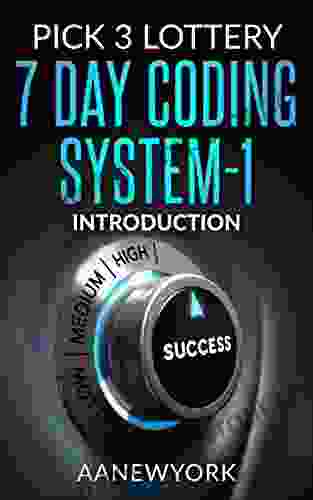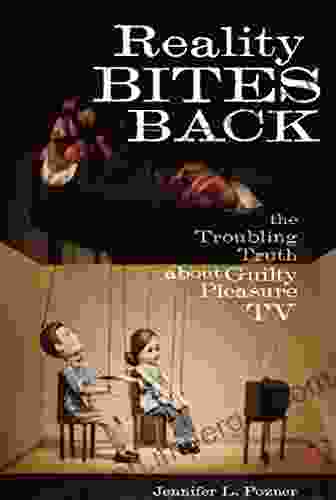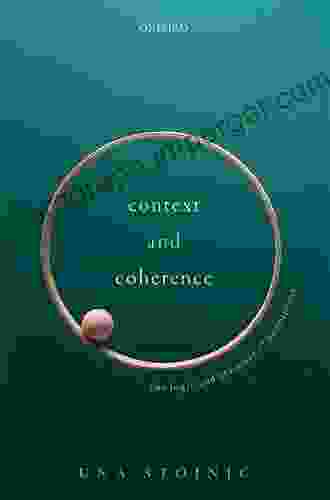The Restrictive Covenant Cases: A Prelude to the American Civil Rights Movement

5 out of 5
| Language | : | English |
| File size | : | 3753 KB |
| Text-to-Speech | : | Enabled |
| Screen Reader | : | Supported |
| Enhanced typesetting | : | Enabled |
| Word Wise | : | Enabled |
| Print length | : | 308 pages |
In the annals of American history, the Restrictive Covenant Cases stand as a pivotal chapter in the fight for civil rights and racial equality. These landmark legal battles challenged the pervasive use of racial covenants in property deeds, which effectively barred African Americans and other minority groups from purchasing homes in white neighborhoods.
Through a series of Supreme Court rulings, the Restrictive Covenant Cases gradually chipped away at the legal foundations of racial segregation. They laid the groundwork for the landmark Brown v. Board of Education decision, which finally outlawed segregation in public schools and marked a turning point in the Civil Rights Movement.
A Troubled Historical Context
The Restrictive Covenant Cases emerged during a time of heightened racial tension and segregation in the United States. Following the Reconstruction Era, a backlash against African American progress led to the implementation of Jim Crow laws, which enforced racial separation in all aspects of life.
Restrictive covenants were a particularly insidious form of racial discrimination. Embedded in property deeds, they prohibited the sale or lease of homes to non-white buyers. These covenants were widely used across the country, particularly in white suburban communities, and prevented African Americans from establishing themselves in desirable neighborhoods.
Challenging Racial Covenants: A Legal Battle Unfolds
In the early 1900s, a series of lawsuits challenged the legality of restrictive covenants. One notable case was Corrigan v. Buckley (1926),where an African American family sought to Free Download a home in a white neighborhood in Washington, D.C. Despite the presence of a restrictive covenant, the family argued that the covenant violated their constitutional rights.
The case reached the Supreme Court, which ruled against the family in a 5-4 decision. The Court held that restrictive covenants were a matter of private contract and did not violate the Equal Protection Clause of the 14th Amendment. However, this ruling did not end the legal battle against restrictive covenants.
Supreme Court Rulings: From Shelley v. Kraemer to Brown v. Board of Education
In 1948, the Supreme Court revisited the issue of restrictive covenants in Shelley v. Kraemer. This case involved a covenant in a St. Louis, Missouri, neighborhood that prohibited the sale of homes to African Americans. The Court, in a unanimous decision, ruled that restrictive covenants could not be enforced by the courts.
The Shelley v. Kraemer ruling was a major victory for the Civil Rights Movement. It effectively ended the legal enforcement of restrictive covenants, although racial discrimination in housing persisted in other forms. Moreover, it paved the way for the landmark Brown v. Board of Education decision in 1954, which outlawed segregation in public schools.
The Enduring Legacy of the Restrictive Covenant Cases
The Restrictive Covenant Cases played a pivotal role in dismantling the legal framework of racial segregation in the United States. They recognized the fundamental principle that property rights could not be used to justify racial discrimination.
The legacy of these cases extends beyond the realm of law. They demonstrated the power of legal challenges to systemic racism and inspired a generation of activists and civil rights leaders. They also contributed to a shift in public opinion, gradually eroding the acceptability of racial discrimination and paving the way for a more equitable society.
Rediscovering the Past to Shape the Future
The Restrictive Covenant Cases serve as a reminder of the ongoing struggle for racial equality in the United States. While significant progress has been made, racial disparities and discrimination continue to exist in various forms.
By studying the history of these cases, we can gain a deeper understanding of the challenges faced by African Americans in the past and identify strategies to address contemporary forms of discrimination. The Restrictive Covenant Cases remind us that the fight for equality is an ongoing journey and that we must remain vigilant in our efforts to create a more just and inclusive society.
5 out of 5
| Language | : | English |
| File size | : | 3753 KB |
| Text-to-Speech | : | Enabled |
| Screen Reader | : | Supported |
| Enhanced typesetting | : | Enabled |
| Word Wise | : | Enabled |
| Print length | : | 308 pages |
Do you want to contribute by writing guest posts on this blog?
Please contact us and send us a resume of previous articles that you have written.
 Book
Book Novel
Novel Page
Page Chapter
Chapter Text
Text Story
Story Genre
Genre Reader
Reader Library
Library Paperback
Paperback E-book
E-book Magazine
Magazine Newspaper
Newspaper Paragraph
Paragraph Sentence
Sentence Bookmark
Bookmark Shelf
Shelf Glossary
Glossary Bibliography
Bibliography Foreword
Foreword Preface
Preface Synopsis
Synopsis Annotation
Annotation Footnote
Footnote Manuscript
Manuscript Scroll
Scroll Codex
Codex Tome
Tome Bestseller
Bestseller Classics
Classics Library card
Library card Narrative
Narrative Biography
Biography Autobiography
Autobiography Memoir
Memoir Reference
Reference Encyclopedia
Encyclopedia Jim Robbins
Jim Robbins Jess K Gilmour
Jess K Gilmour Jill Hill
Jill Hill Jennie Bentley
Jennie Bentley Jeffrey E Brower
Jeffrey E Brower Jessica Dulong
Jessica Dulong Jinee Lokaneeta
Jinee Lokaneeta Jim Gant
Jim Gant John A Parrish
John A Parrish John Brockman
John Brockman Jeff Nussbaum
Jeff Nussbaum John B Nichols
John B Nichols Jennifer Simonetti Bryan
Jennifer Simonetti Bryan Joan Liffring Zug Bourret
Joan Liffring Zug Bourret Joe Klein
Joe Klein Joe Moran
Joe Moran Jim Piper
Jim Piper Jenny Mustard
Jenny Mustard Jerry Brotton
Jerry Brotton John A Tyler
John A Tyler
Light bulbAdvertise smarter! Our strategic ad space ensures maximum exposure. Reserve your spot today!
 Blake BellFollow ·19.3k
Blake BellFollow ·19.3k Rex HayesFollow ·11.3k
Rex HayesFollow ·11.3k Andres CarterFollow ·11k
Andres CarterFollow ·11k Carson BlairFollow ·4.6k
Carson BlairFollow ·4.6k Julian PowellFollow ·6.7k
Julian PowellFollow ·6.7k Patrick HayesFollow ·3.3k
Patrick HayesFollow ·3.3k Casey BellFollow ·11.5k
Casey BellFollow ·11.5k Kurt VonnegutFollow ·19.5k
Kurt VonnegutFollow ·19.5k

 Christian Barnes
Christian BarnesUnleash Your Creativity: Build Interlocking 3D Animal and...
Discover the Art of Paper...

 Terry Bell
Terry BellUnveiling the Secrets of Winning: A Comprehensive Guide...
In the realm of chance and fortune, the...

 Albert Camus
Albert Camus101 Things That You Should Do Before Leaving The House In...
Starting your day right is...

 Anthony Burgess
Anthony BurgessForcing Move 2024 Volume: Unleash Your Inner Grandmaster
Embark on an extraordinary chess...
5 out of 5
| Language | : | English |
| File size | : | 3753 KB |
| Text-to-Speech | : | Enabled |
| Screen Reader | : | Supported |
| Enhanced typesetting | : | Enabled |
| Word Wise | : | Enabled |
| Print length | : | 308 pages |
















